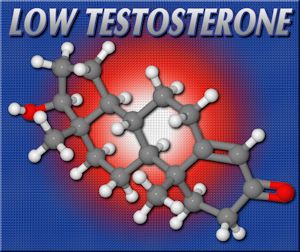Introduction
Liver disease, a prevalent health concern among American males, can have far-reaching effects on various bodily systems, including the reproductive system. The liver plays a crucial role in hormone regulation, and its dysfunction can lead to significant alterations in testicular function. This article delves into the intricate relationship between hepatic dysfunction and testicular health, shedding light on the challenges faced by American males with liver disease and the potential implications for their reproductive well-being.
Understanding Liver Disease and Its Prevalence
Liver disease encompasses a wide range of conditions, from fatty liver disease and hepatitis to cirrhosis and liver cancer. In the United States, liver disease affects millions of men, with risk factors including alcohol consumption, obesity, and viral infections. The liver's vital role in detoxification, metabolism, and hormone regulation makes its health essential for overall well-being, including reproductive function.
The Liver's Role in Hormonal Balance
The liver is instrumental in maintaining hormonal equilibrium, particularly in the metabolism of sex hormones. It converts testosterone into estrogen and helps regulate the levels of sex hormone-binding globulin (SHBG), which binds to testosterone in the blood. When liver function is compromised, these processes can be disrupted, leading to hormonal imbalances that directly impact testicular function.
Impact of Hepatic Dysfunction on Testicular Health
Hepatic dysfunction can lead to a condition known as hypogonadism, characterized by reduced testosterone production and impaired testicular function. Studies have shown that men with chronic liver disease often exhibit lower testosterone levels and higher estrogen levels, which can result in symptoms such as decreased libido, erectile dysfunction, and reduced muscle mass. Furthermore, the liver's inability to effectively metabolize hormones can exacerbate these issues, creating a vicious cycle of hormonal imbalance and testicular dysfunction.
Clinical Manifestations and Diagnostic Challenges
Diagnosing testicular dysfunction in men with liver disease can be complex due to overlapping symptoms and the multifaceted nature of liver disease itself. Common manifestations include gynecomastia (enlarged breast tissue in males), reduced sperm count, and altered secondary sexual characteristics. Clinicians must employ a comprehensive approach, including hormone level assessments, imaging studies, and thorough medical histories, to accurately diagnose and manage these conditions.
Management Strategies and Treatment Options
Managing testicular dysfunction in the context of liver disease requires a multifaceted approach. Lifestyle modifications, such as reducing alcohol consumption and maintaining a healthy weight, are crucial for improving liver health and, consequently, hormonal balance. Pharmacological interventions, such as testosterone replacement therapy, may be considered under careful medical supervision. Additionally, addressing the underlying liver disease through antiviral medications, lifestyle changes, or, in severe cases, liver transplantation, can significantly improve testicular function and overall quality of life.
The Psychological and Social Impact
The psychological and social ramifications of testicular dysfunction in men with liver disease should not be underestimated. Reduced libido and fertility issues can lead to emotional distress, relationship strain, and a diminished sense of masculinity. It is essential for healthcare providers to offer comprehensive support, including counseling and access to support groups, to help men navigate these challenges and maintain a positive outlook on their health and well-being.
Conclusion
The interplay between liver disease and testicular function in American males is a critical area of concern that warrants further research and clinical attention. By understanding the mechanisms through which hepatic dysfunction impacts the reproductive system, healthcare professionals can develop targeted interventions to improve the quality of life for affected individuals. As the prevalence of liver disease continues to rise, addressing its impact on testicular health remains a vital component of comprehensive care for American males.
Contact Us Today For A Free Consultation

- Navigating Life After Testicular Cancer: Health, Fertility, and Well-being for Survivors [Last Updated On: March 8th, 2025] [Originally Added On: March 8th, 2025]
- Stress and Testicular Health: Impacts and Management Strategies for American Men [Last Updated On: March 17th, 2025] [Originally Added On: March 17th, 2025]
- Regular Check-ups: Vital for American Men's Testicular Health and Early Issue Detection [Last Updated On: March 17th, 2025] [Originally Added On: March 17th, 2025]
- Testicular and Prostate Health: Understanding the Vital Connection for Male Wellness [Last Updated On: March 17th, 2025] [Originally Added On: March 17th, 2025]
- Exercise and Its Vital Role in Enhancing Testicular Health in American Males [Last Updated On: March 19th, 2025] [Originally Added On: March 19th, 2025]
- Testicular Health and Hormone Replacement Therapy: A Comprehensive Guide for American Men [Last Updated On: March 20th, 2025] [Originally Added On: March 20th, 2025]
- Economic Burden of Testicular Cancer Treatment on American Males: Direct and Indirect Costs [Last Updated On: March 20th, 2025] [Originally Added On: March 20th, 2025]
- Understanding Testicular Pain: Causes, Diagnosis, and Treatment Options for American Males [Last Updated On: March 20th, 2025] [Originally Added On: March 20th, 2025]
- Testicular Health and Mental Well-being: A Holistic Approach for Men [Last Updated On: March 20th, 2025] [Originally Added On: March 20th, 2025]
- Understanding Testicular Health: Causes, Diagnosis, and Treatment Options for Infertility [Last Updated On: March 20th, 2025] [Originally Added On: March 20th, 2025]
- Smoking's Impact on Testicular Health in American Males: Risks and Prevention [Last Updated On: March 20th, 2025] [Originally Added On: March 20th, 2025]
- Ultrasound: A Key Tool for Diagnosing Testicular Conditions in American Males [Last Updated On: March 21st, 2025] [Originally Added On: March 21st, 2025]
- Educating Young Men on Testicular Health: Importance, Conditions, and Early Detection [Last Updated On: March 21st, 2025] [Originally Added On: March 21st, 2025]
- Diabetes Impact on Testicular Health: Insights for American Men [Last Updated On: March 21st, 2025] [Originally Added On: March 21st, 2025]
- Autoimmune Disorders and Testicular Health: Impacts and Management for American Men [Last Updated On: March 23rd, 2025] [Originally Added On: March 23rd, 2025]
- Testicular Cancer Screening: Guidelines and Importance for Early Detection in Men [Last Updated On: March 23rd, 2025] [Originally Added On: March 23rd, 2025]
- Nutrition and Lifestyle: Keys to American Men's Testicular Health [Last Updated On: March 23rd, 2025] [Originally Added On: March 23rd, 2025]
- Sleep's Vital Role in American Males' Testicular Health and Hormonal Balance [Last Updated On: March 24th, 2025] [Originally Added On: March 24th, 2025]
- Endocrine Disruptors' Impact on Testicular Health: Risks and Mitigation for American Males [Last Updated On: March 24th, 2025] [Originally Added On: March 24th, 2025]
- Testicular Health's Impact on Cardiovascular Disease in American Men: A Holistic View [Last Updated On: March 24th, 2025] [Originally Added On: March 24th, 2025]
- Alcohol's Impact on Testicular Health: Risks and Mitigation Strategies for American Men [Last Updated On: March 24th, 2025] [Originally Added On: March 24th, 2025]
- Environmental Threats to Testicular Health: A Call for American Male Action [Last Updated On: March 25th, 2025] [Originally Added On: March 25th, 2025]
- Breaking Barriers: Enhancing Testicular and Mental Health Awareness in American Males [Last Updated On: March 25th, 2025] [Originally Added On: March 25th, 2025]
- Overcoming Psychological Barriers to Testicular Health Care in American Men [Last Updated On: March 25th, 2025] [Originally Added On: March 25th, 2025]
- Public Health Campaigns Boost Testicular Health Awareness Among American Men [Last Updated On: March 25th, 2025] [Originally Added On: March 25th, 2025]
- Breaking Silence: Enhancing Testicular Health and Mental Well-being in American Men [Last Updated On: March 25th, 2025] [Originally Added On: March 25th, 2025]
- Antioxidants: Key to Enhancing Testicular Health and Fertility in American Men [Last Updated On: March 25th, 2025] [Originally Added On: March 25th, 2025]
- Understanding Testicular Health and Reproductive Rights for American Men [Last Updated On: March 25th, 2025] [Originally Added On: March 25th, 2025]
- Testicular Health and Immune System: A Vital Connection for American Males [Last Updated On: March 25th, 2025] [Originally Added On: March 25th, 2025]
- Anabolic Steroids' Impact on Testicular Health and Fertility in American Men [Last Updated On: March 25th, 2025] [Originally Added On: March 25th, 2025]
- Socioeconomic Factors Impacting Testicular Health Care Access in American Males [Last Updated On: March 25th, 2025] [Originally Added On: March 25th, 2025]
- Telemedicine Revolutionizes Testicular Health Services for American Men [Last Updated On: March 25th, 2025] [Originally Added On: March 25th, 2025]
- Testicular Health: Vital for Men's Well-being and Chronic Disease Prevention [Last Updated On: March 26th, 2025] [Originally Added On: March 26th, 2025]
- Vitamins D, C, E, Folate Boost Testicular Health in American Men [Last Updated On: March 26th, 2025] [Originally Added On: March 26th, 2025]
- Chemotherapy's Impact on Testicular Health and Fertility in American Male Cancer Survivors [Last Updated On: March 26th, 2025] [Originally Added On: March 26th, 2025]
- Lifestyle Diseases and Testicular Health: A Guide for American Men [Last Updated On: March 26th, 2025] [Originally Added On: March 26th, 2025]
- Community Initiatives Boost Testicular Health Awareness in American Males [Last Updated On: March 26th, 2025] [Originally Added On: March 26th, 2025]
- Occupational Hazards and Testicular Health: Risks, Prevention, and Screening for American Workers [Last Updated On: March 26th, 2025] [Originally Added On: March 26th, 2025]
- Radiation Therapy's Impact on Testicular Health: Risks, Management, and Future Hope [Last Updated On: March 26th, 2025] [Originally Added On: March 26th, 2025]
- Genetic Counseling: A Vital Tool in Testicular Cancer Prevention for American Males [Last Updated On: March 27th, 2025] [Originally Added On: March 27th, 2025]
- Testicular Health and Aging: Hormonal Changes, Impacts, and Treatments for American Men [Last Updated On: March 27th, 2025] [Originally Added On: March 27th, 2025]
- Viral Infections and Testicular Health: Impacts and Prevention for American Males [Last Updated On: March 27th, 2025] [Originally Added On: March 27th, 2025]
- Understanding Testicular Health: Impacts on American Men's Psychology and Body Image [Last Updated On: March 27th, 2025] [Originally Added On: March 27th, 2025]
- Testicular Health and Fertility Preservation: A Comprehensive Guide for American Males [Last Updated On: March 27th, 2025] [Originally Added On: March 27th, 2025]
- Heat Exposure Risks to Testicular Health in American Men: Impacts and Mitigation [Last Updated On: March 27th, 2025] [Originally Added On: March 27th, 2025]
- Illicit Drugs' Impact on Testicular Health in American Men: Risks and Prevention [Last Updated On: March 28th, 2025] [Originally Added On: March 28th, 2025]
- Exercise Boosts Testicular Health: Benefits for American Men [Last Updated On: March 28th, 2025] [Originally Added On: March 28th, 2025]
- Modern Lifestyles and Testicular Health: Risks and Preventive Strategies for American Men [Last Updated On: March 28th, 2025] [Originally Added On: March 28th, 2025]
- Managing Chronic Testicular Pain: Strategies for American Men's Health [Last Updated On: March 29th, 2025] [Originally Added On: March 29th, 2025]
- Testicular Health and Cancer Survivorship: Detection, Treatment, and Long-term Care [Last Updated On: March 29th, 2025] [Originally Added On: March 29th, 2025]
- Enhancing Testicular Health Education for American Males: Gaps and Strategies [Last Updated On: March 30th, 2025] [Originally Added On: March 30th, 2025]
- Essential Guide to Testicular Health for American Males: Functions, Conditions, and Care [Last Updated On: March 30th, 2025] [Originally Added On: March 30th, 2025]
- Testicular Cancer: Understanding, Support Groups, and Recovery Benefits [Last Updated On: March 31st, 2025] [Originally Added On: March 31st, 2025]
- Antibiotics' Impact on Testicular Health: Insights for American Men's Reproductive Wellness [Last Updated On: April 1st, 2025] [Originally Added On: April 1st, 2025]
- Herbal Supplements for Testicular Health: Benefits and Considerations for American Men [Last Updated On: April 2nd, 2025] [Originally Added On: April 2nd, 2025]
- Testicular Health: Vital for Male Wellness and Mental Resilience [Last Updated On: April 3rd, 2025] [Originally Added On: April 3rd, 2025]
- Testicular Health: Advances in Cancer Treatment, Fertility, and Hormonal Therapies for American Males [Last Updated On: April 5th, 2025] [Originally Added On: April 5th, 2025]
- Mental Health Professionals' Vital Role in American Men's Testicular Health Care [Last Updated On: April 6th, 2025] [Originally Added On: April 6th, 2025]
- Environmental Policies Crucial for Protecting American Male Testicular Health [Last Updated On: April 7th, 2025] [Originally Added On: April 7th, 2025]
- Pesticide Exposure and Its Impact on Testicular Health in American Men [Last Updated On: April 7th, 2025] [Originally Added On: April 7th, 2025]
- Enhancing Testicular Health Awareness and Care in American Males: Strategies and Initiatives [Last Updated On: April 8th, 2025] [Originally Added On: April 8th, 2025]
- Heavy Metals and Testicular Health: Risks and Prevention for American Men [Last Updated On: April 10th, 2025] [Originally Added On: April 10th, 2025]
- Physical Therapy's Role in Enhancing Testicular Health for American Men [Last Updated On: April 10th, 2025] [Originally Added On: April 10th, 2025]
- Plastics and Testicular Health: Risks and Reduction Strategies for American Men [Last Updated On: April 11th, 2025] [Originally Added On: April 11th, 2025]
- Empowering American Males: Understanding and Managing Testicular Health [Last Updated On: April 12th, 2025] [Originally Added On: April 12th, 2025]
- Testicular Health: Importance, Conditions, and Policy Impact on American Males [Last Updated On: April 12th, 2025] [Originally Added On: April 12th, 2025]
- Community Health Workers: Enhancing Testicular Health Education in American Men [Last Updated On: April 13th, 2025] [Originally Added On: April 13th, 2025]
- Promoting Testicular Health in Workplace Wellness Programs: A Vital Initiative for Men [Last Updated On: April 13th, 2025] [Originally Added On: April 13th, 2025]
- Educational Campaigns Crucial for Testicular Cancer Awareness Among American Men [Last Updated On: April 15th, 2025] [Originally Added On: April 15th, 2025]
- Promoting Testicular Health and Mental Well-being in American Males: A Call to Action [Last Updated On: April 15th, 2025] [Originally Added On: April 15th, 2025]
- Air Pollution's Impact on Testicular Health in American Men: A Growing Concern [Last Updated On: April 16th, 2025] [Originally Added On: April 16th, 2025]
- Integrating Testicular and Mental Health Services for Holistic Male Wellness [Last Updated On: April 17th, 2025] [Originally Added On: April 17th, 2025]
- Nutrition and Lifestyle: Keys to Enhancing Testicular Health in American Males [Last Updated On: April 18th, 2025] [Originally Added On: April 18th, 2025]
- Water Contaminants' Impact on Testicular Health in American Men: A Critical Analysis [Last Updated On: April 18th, 2025] [Originally Added On: April 18th, 2025]
- Testicular Health: Function, Conditions, and Proactive Management for American Males [Last Updated On: April 18th, 2025] [Originally Added On: April 18th, 2025]
- Enhancing Testicular Health: Advocacy, Policy, and Awareness Strategies for American Males [Last Updated On: April 19th, 2025] [Originally Added On: April 19th, 2025]
- Genetic Testing: A Key to Managing Testicular Health in American Men [Last Updated On: April 19th, 2025] [Originally Added On: April 19th, 2025]
- Exercise Benefits for Testicular Health: Enhancing Male Wellness Through Physical Activity [Last Updated On: April 20th, 2025] [Originally Added On: April 20th, 2025]
- Dietary Impact on Testicular Health: Antioxidants and Omega-3s Boost Function [Last Updated On: April 22nd, 2025] [Originally Added On: April 22nd, 2025]
- Advancements in Testicular Prostheses: Enhancing Life Post-Orchiectomy for American Males [Last Updated On: April 22nd, 2025] [Originally Added On: April 22nd, 2025]
Word Count: 582




















